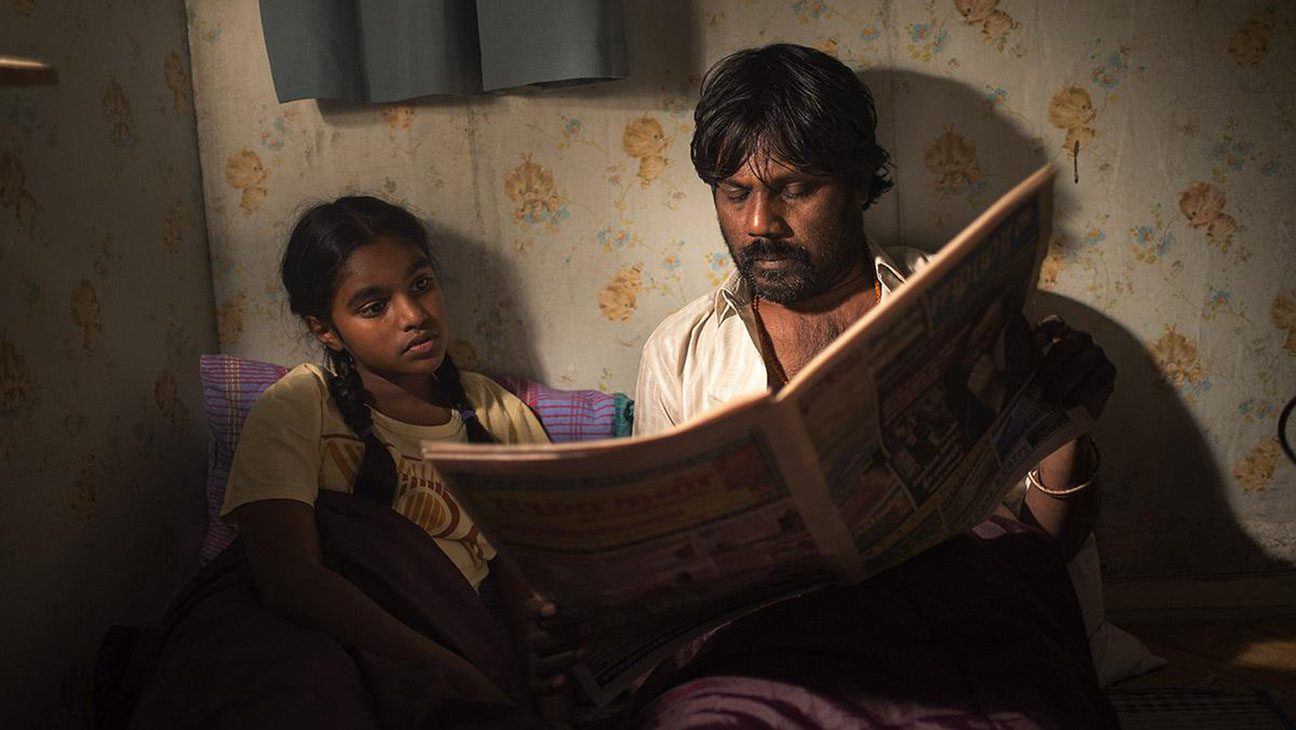With the 69th annual Cannes Film Festival underway, it is a very exciting time for international film. The first glimpses of possibly end-of-the-year and Oscar favorites are keeping the press abuzz. In some ways, it is only fitting that the 2015 winner of the coveted Palme d’Or finally reaches American cinemas.”Dheepan”, from director Jacques Audiard, has been making its international festival rounds to much fanfare and glowing press, however, it’s North American release comes quietly.
The film follows a soldier who fought as a Tamil in the Sri Lankan Civil War. After the conflict, he is moved to a refugee camp following his defeat. Seeking a way out of the country, he assumes the name Dheepan by using the passport of a fallen man and poses a woman and child whom he does not know as his family. The trio land in a housing project in suburban France, where Dheepan becomes the caretaker, only to find that the project is the base for a host of organized thugs.
The film’s central story is one that is particularly enlightening considering the parallels to the current refugee crisis in Europe. The film’s deliberate sense of realism and grit heightens not only it’s emotional impact but also provides a greater context for those far removed from the current international strife. What is perhaps most effective, though, is the film’s tendency to focus on greater themes of foreign adjustment, and not just in its cultural relevancy.
Unfortunately, despite fantastic lead performances from Antonythasan Jesuthasan, Kalieaswari Srinivasan and Claudine Vinasithamby, the film’s plotting falters as it goes forth. The film is a rather quiet portrait that slowly becomes a violent thriller in the final act. This is not to say it is not a thrilling switch. Without spoiling too much of the plot, the dissonance between the quiet, affecting first two acts and the loud, conflict zone that the third act introduces is jarring, despite its thematic purpose.
And thus, “Dheepan” is a film that, oddly enough, a lot of action films can learn from. It molds its characters carefully, with a sense of verité. Dheepan and his family are not too far removed from modern society’s anxieties – they feel authentic, not only as refugees but as people. While this gives the film’s rugged edge some heft, “Dheepan” does unfortunately drag. If it stayed away from bombast, it could be quite the motion picture. It is still a relevant narrative worthy of its place in cinemas.
“Dheepan” is rated R for violence, language, and brief sexuality/nudity. Now playing at Laemmle’s Royal Theatre.
Jasper Bernbaum
Jasper is a contributing writer for Cinemacy. He combines his love of music with his visual eye into a passion for live photography. He holds a BFA in Film Production from Chapman University and is an avid filmmaker, watcher, and all around cultural adventurer.

